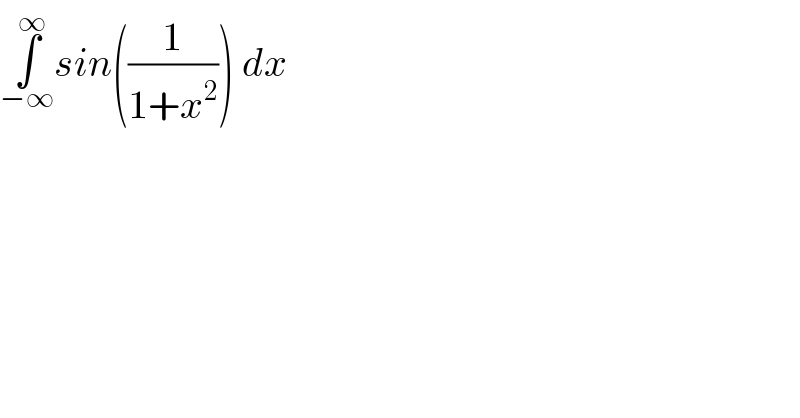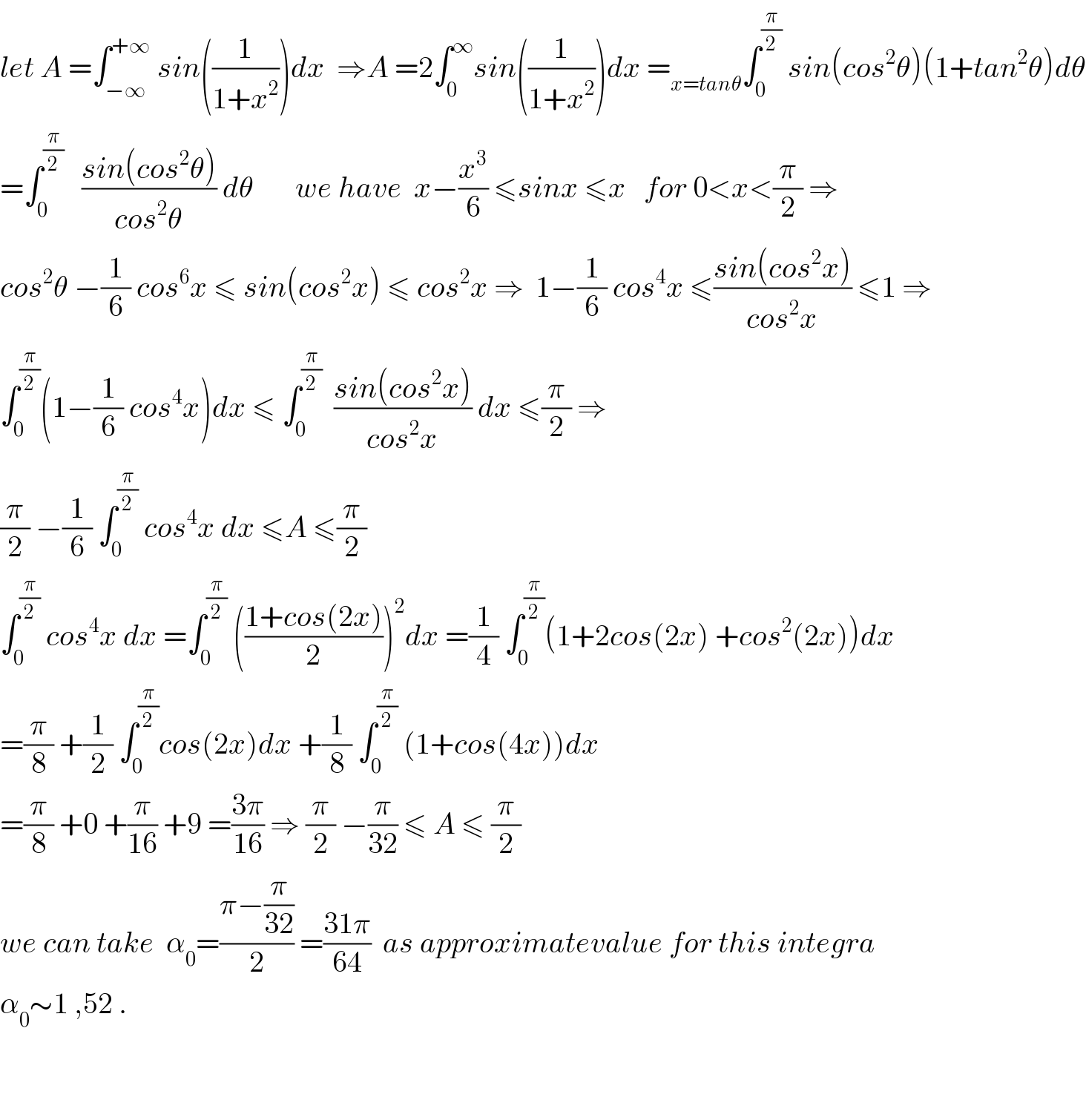
Question and Answers Forum
Question Number 60783 by aliesam last updated on 25/May/19

Commented by maxmathsup by imad last updated on 25/May/19

Commented by maxmathsup by imad last updated on 25/May/19

| ||
Question and Answers Forum | ||
Question Number 60783 by aliesam last updated on 25/May/19 | ||
 | ||
Commented by maxmathsup by imad last updated on 25/May/19 | ||
 | ||
Commented by maxmathsup by imad last updated on 25/May/19 | ||
 | ||